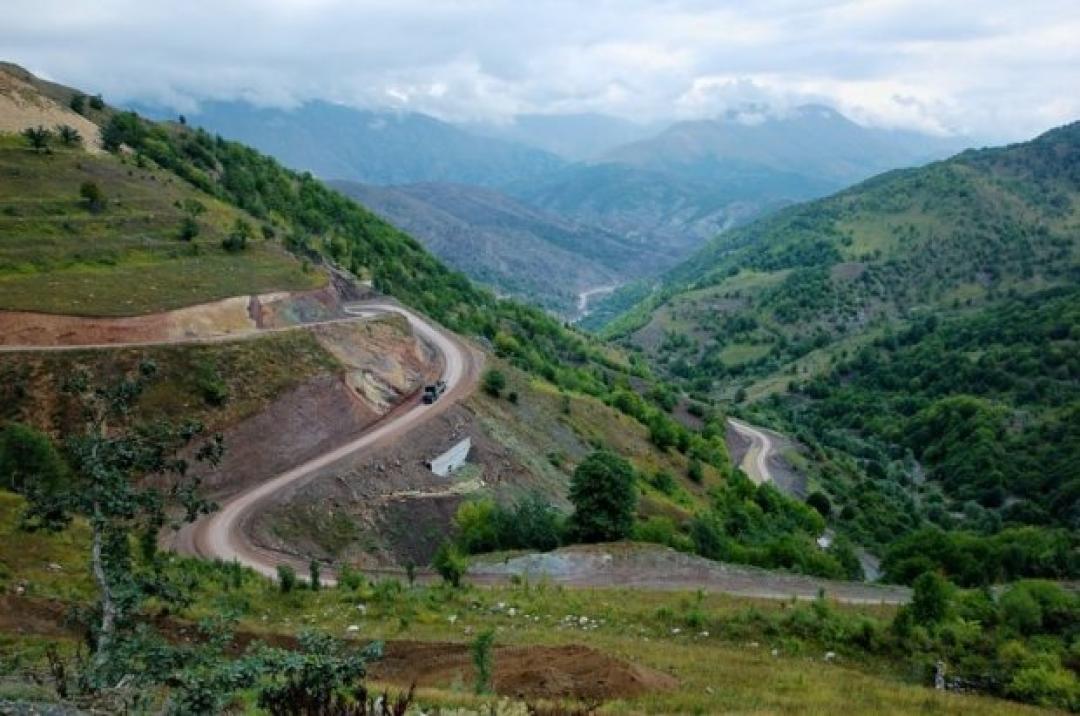
Nagorno-Karabakh: latest developments

On 5 January, Azerbaijan’s President Ilham Aliyev revealed further development plans for the Nagorno-Karabakh region while congratulating Anar Karimov on his appointment as Azerbaijan’s new Minister of Culture.
Aliyev declared the city of Shusha is the new cultural capital of Azerbaijan and that the restoration of the city should start immediately. “In particular, our mosques in Shusha must be overhauled, restored and their original appearance returned to them. The Armenians have destroyed more than 60 of our mosques,” he stated. Aliyev also spoke on restoring the Poetry Days of Vagif.
Aliyev further emphasised that there were attempts from the de facto authorities in Nagorno-Karabakh to attempt to repair a mosque in Shusha with international aid, but without the permission of Azerbaijani authorities. “How can you go to the territory of Azerbaijan without our permission, allegedly repairing our mosque together with the occupying Armenians? What international norms does it fit into? Which moral frames does that fit into? What company or people can ever do that? These are our historical sites, so you should ask us. But they went to the occupied lands of another country and did some work there for yourselves. The historical appearance of the mosque was changed,” Aliyev stressed. He announced that an ICESCO mission would visit the country soon to record the destruction of Muslim sites in the region. He also announced that an international airport would be built in Fizuli to create opportunities to invite foreign guests to Shusha.
The Azerbaijani President blamed Armenia’s former ruling elite for causing the destruction of the Azerbaijani cultural heritage in Nagorno-Karabakh. “It was Robert Kocharyan who desecrated the mosque, painted insulting pictures on the walls of the mosque and wrote obscene words. His henchman Serzh Sargsyan and himself – they destroyed our cities for 20 years. Our cities were not destroyed during the war. It is impossible to destroy cities during the war. During the occupation after the war, all buildings and settlements were razed to the ground. They are vandals and barbarians, but they ruled Armenia for 20 years,” he said.
It was also reported that the staff of the Russian Ministry of Emergency Situations started de-mining and disposing of the unexploded ordnance on 100 hectares of land in the Aghdam district of Nagorno-Karabakh. The head of the working group of the State Commission on Captives, Missing, and Hostages Ismayil Akhundov said that 5 Armenian servicemen and 2 civilians are still detained in Azerbaijan, while two Azerbaijani civilians are still in Armenian captivity during the prisoner exchange process.
Meanwhile, administrative changes within the de facto Nagorno-Karabakh authorities were reported. Karabakh’s de facto President Arayik Harutunyan relieved Masis Mayilyan of the post of Karabakh’s de facto Foreign Minister, replacing him with David Babayan, who served as the de facto presidential advisor. By another decree, Vahram Baghdasaryan was relieved of the post of the regions de facto Minister of Finance, replacing him with Grigory Martirosyan.
It was also reported that Armenia’s Foreign Minister Ara Ayvazyan conducted a working visit to Karabakh. Ayvazyan signed with Babayan a plan of consultations for 2021. Armenia’s Minister of Labor and Social Affairs Mesrop Arakelyan also conducted a visit to Karabakh, where he met with Harutunyan. Harutyunyan and Mesropyan discussed issues related to the solution of social issues of Armenian residents in Karabakh who were left homeless after the war and found temporary refuge in Armenia. Harutyunyan highlighted the importance of the social assistance programs implemented by the Armenian government. He expressed hope to jointly create a secure social environment for the Karabakh people.
Ayvazyan’s visit to Nagorno-Karabakh caused a negative reaction in Azerbaijan. “The illegal visit of Armenian Foreign Minister Ara Ayvazyan to the Nagorno-Karabakh region of Azerbaijan, where he met with representatives of the so-called structure and signed "documents", contradicts the trilateral declaration on ceasefire and cessation of all hostilities in the Nagorno-Karabakh region signed on November 10, 2020, and completely does not correspond to the framework for establishing peace, security and cooperation in the region after the cessation of hostilities”, spokesperson for the Azerbaijani Foreign Ministry Leyla Abdullayeva said.
See Also


Yerevan Balances Strategic Ties with Both US and Russia, Says Foreign Minister

FM Mirzoyan: Peace Deal with Azerbaijan Is Within Reach

Pashinyan and Erdogan Hold Call, Reaffirm Commitment to Ongoing Dialogue

Ilham Aliyev and Masoud Pezeshkian Discuss Development of Bilateral Relations

